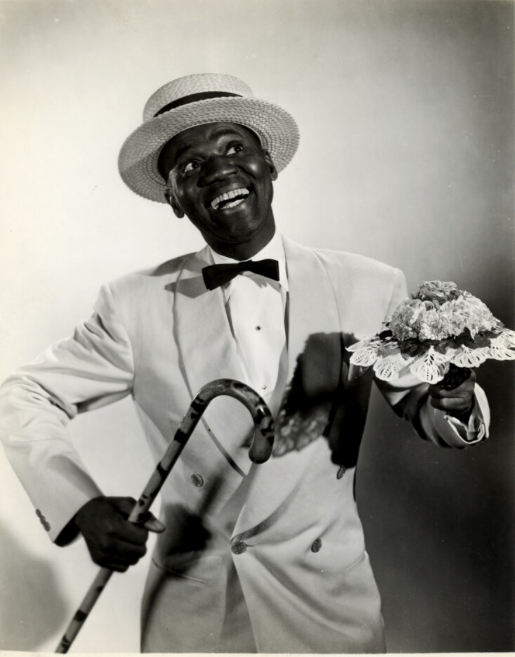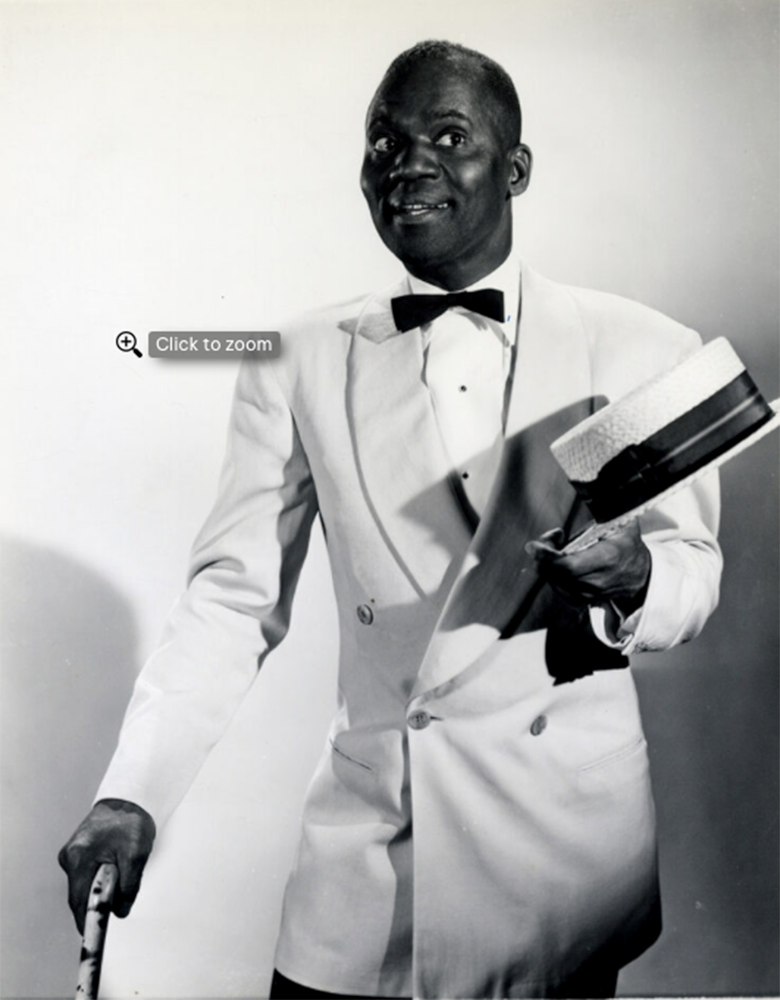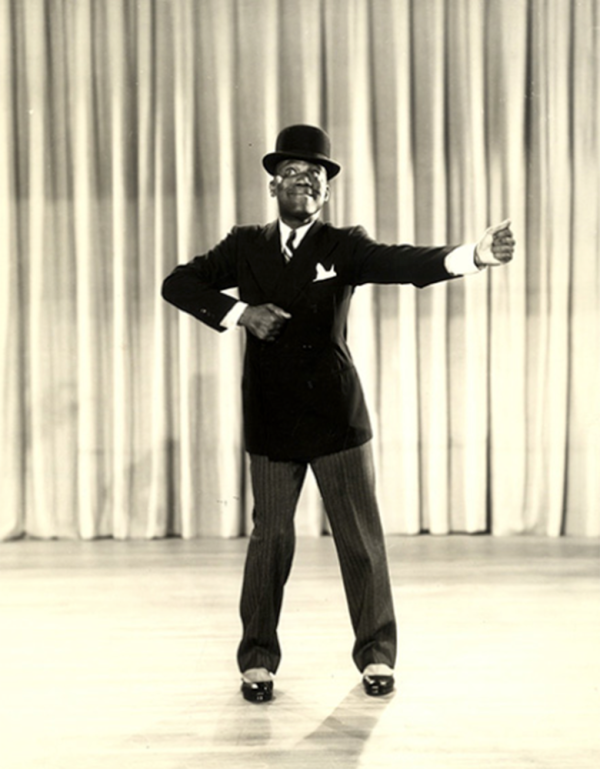
Bojangles Robinson, The Toe-Tapping Wonder
Bill “Bojangles” Robinson (born Luther Robinson; May 25, 1878 – November 25, 1949), was an American tap dancer, actor, and singer, the best known and the most highly paid black entertainer in the United States during the first half of the 20th century.
His long career began in the age of minstrel shows and moved to vaudeville, Broadway theatre, the recording industry, Hollywood films, radio, and television.
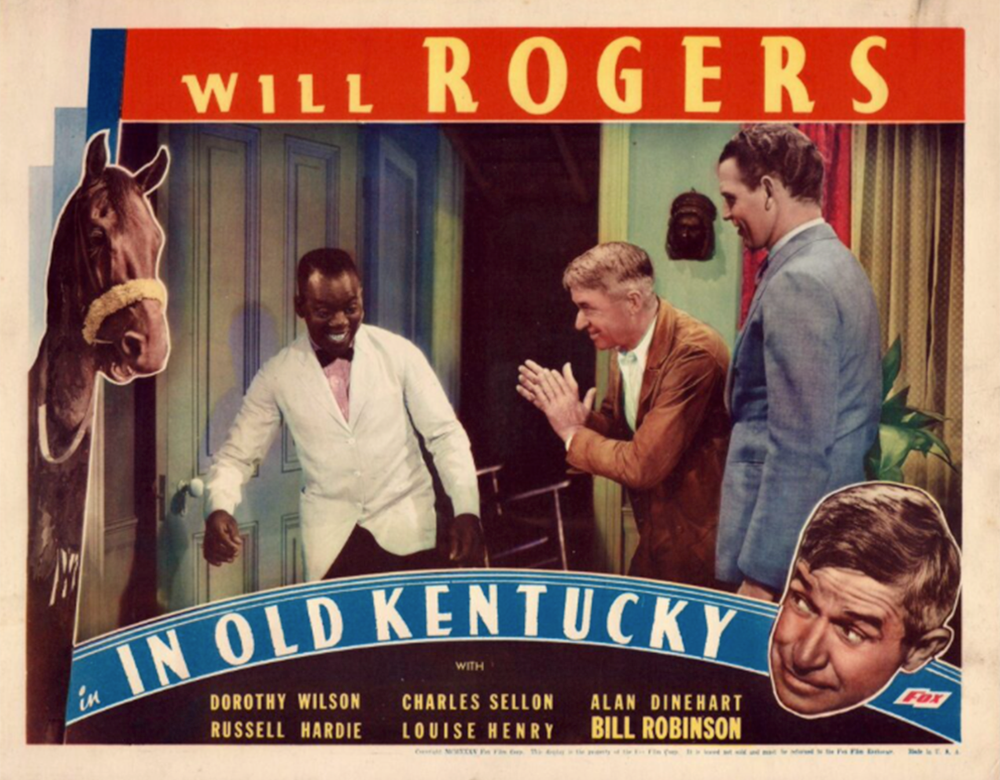
[Hollywood]: Twentieth Century Fox, 1935. Vintage original 11 x 14″ (28 x 36 cm.) lobby card, near fine.
Up On HIs Toes
Robinson’s contribution to tap dance is exact and specific. He brought it to its toes, dancing upright and swinging, adding a “hitherto-unknown lightness and presence.” His signature routine was the stair dance, in which he would tap up and down a set of stairs in a rhythmically complex sequence of steps.
Being The First
Robinson used his popularity to challenge and overcome numerous racial barriers. He was one of the first minstrel and vaudeville performers to appear as black without the use of blackface makeup, as well as one of the earliest Black performers to perform solo, overcoming vaudeville’s two-color rule. Additionally, he was an early black headliner in Broadway shows. and the first black performer to headline a mixed-race Broadway production.
Portraits of the great dancer Bill “Bojangles” Robinson in the Black cast musical STORMY WEATHER.
He was also the first black performer to appear in a Hollywood film in an interracial dance team (with Shirley Temple in The Little Colonel, 1935), The sequence was the highlight of the film, and the two went on to appear together in four films: The Little Colonel, The Littlest Rebel, Rebecca of Sunnybrook Farm and Just Around the Corner.
Robinson and Temple became close friends as a result of his dance coaching and acting with her. Temple considered him a lifelong friend, saying in an interview “Bill Robinson treated me as an equal, which was very important to me. He didn’t talk down to me, like to a little girl. And I liked people like that. And Bill Robinson was the best of all.
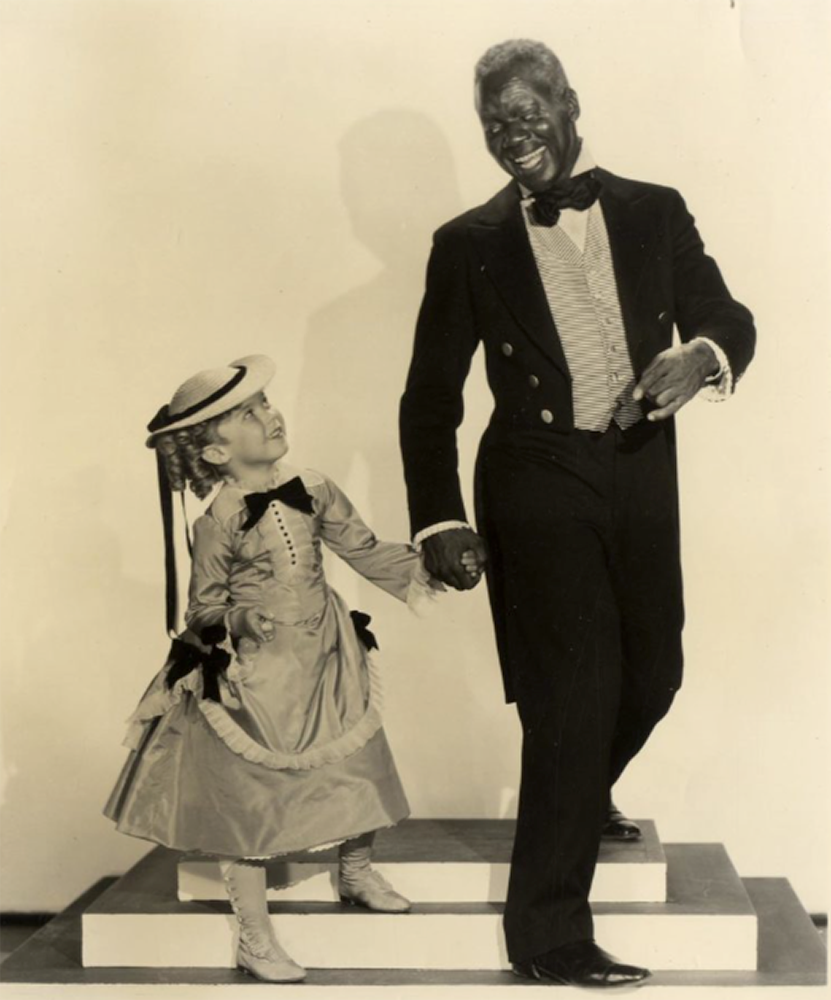
He also stared in the musical Stormy Weather (1943), loosely based on his own life, and selected for preservation in the National Film Registry.
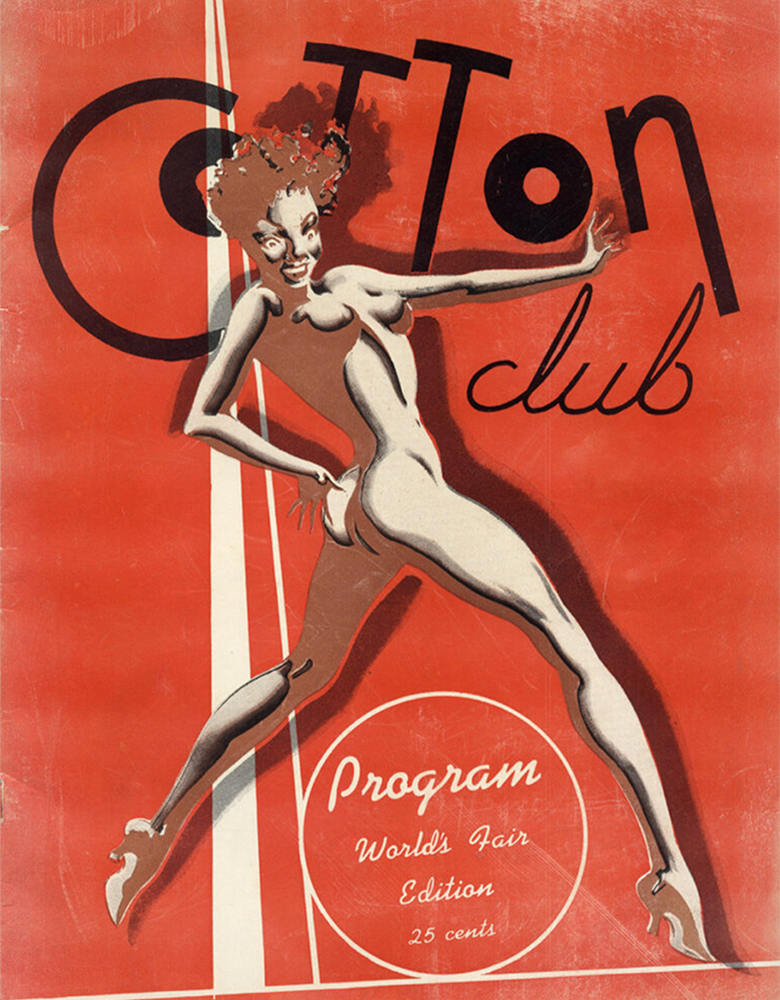
A very scarce program for the legendary Cotton Club, which showcased many of the foremost African American performers of the time. This New York World’s Fair was held in 1939 and 1940. This iteration of the Cotton Club Review featured Cab Calloway and Bill Robinson, as well as Glenn & Jenkins (a minstrel duo).
More Than A Black Movie Star
Robinson came under heavy criticism for his apparent tacit acceptance of racial stereotypes of the era, with some critics calling him an Uncle Tom. He strongly resented this, and his biographers suggested that critics were underestimating the difficulties faced by black performers engaging with mainstream white culture at the time, and ignoring his many efforts to overcome racial prejudice.
In his public life, Robinson led efforts to persuade the Dallas Police Department to hire its first black policeman; lobby President Franklin Delano Roosevelt during World War II for equal treatment of black soldiers; and stage the first integrated public event in Miami, a fundraiser which was attended by both black and white city residents.
An Inter-racial Mentor, Teacher & Friend
Robinson was a popular figure in both black and white entertainment worlds and is remembered for the support that he gave to fellow performers, including Fred Astaire, Eleanor Powell, Lena Horne, Jesse Owens and the Nicholas Brothers. Sammy Davis Jr. and Ann Miller credited him as a teacher and mentor, Miller saying that he “changed the course of my life.” Gregory Hines produced and starred in a biographical movie about Robinson for which he won the NAACP Best Actor Award.
The End with Love and Honor
Despite being the highest-paid black performer of the first half of the 20th century, earning more than US$2 million during his lifetime, Robinson died penniless on November 25, 1949, from heart failure. His funeral was arranged and paid for by longtime friend and television host Ed Sullivan.
Robinson lay in repose at the 369th Infantry Regiment Armory in Harlem, where an estimated 32,000 people filed past his open casket to pay their last respects. The schools in Harlem were closed for a half-day so that children could attend or listen to the funeral, which was broadcast over the radio. Reverend Adam Clayton Powell Sr. conducted the service at the Abyssinian Baptist Church, and New York Mayor William O’Dwyer gave the eulogy. His honorary pallbearers were Duke Ellington, Joe Lewis, Bob Hope, Jackie Robinson, Joe DiMaggio, and Irving Berlin. Robinson is buried in the Cemetery of the Evergreens, Brooklyn, New York.
For additional information on the remarkable life of Bojangles Robinson see https://en.wikipedia.org/wiki/Bill_Robinson
- African American Movie Memorabilia
- African Americana
- Black History
- Celebrating Women’s HistoryI Film
- Celebrity Photographs
- Current Exhibit
- Famous Female Vocalists
- Famous Hollywood Portrait Photographers
- Featured
- Film & Movie Star Photographs
- Film Noir
- Film Scripts
- Hollywood History
- Jazz Singers & Musicians
- LGBTQ Cultural History
- LGBTQ Theater History
- Lobby Cards
- Movie Memorabilia
- Movie Posters
- New York Book Fair
- Pressbooks
- Scene Stills
- Star Power
- Vintage Original Horror Film Photographs
- Vintage Original Movie Scripts & Books
- Vintage Original Publicity Photographs
- Vintage Original Studio Photographs
- WalterFilm

